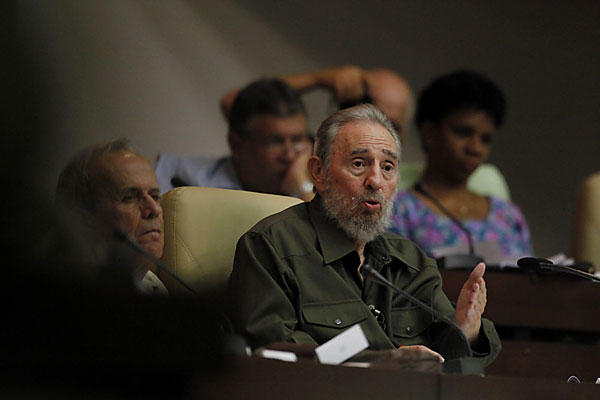
So Fidel did, in the end, appear and speak before the Cuban National Assembly—just in a separate meeting from that of his brother Raúl (though the current President Castro joined this meeting as well to hear Fidel speak). In his 12-minute speech on Saturday, Fidel repeated his recent warnings that tensions between the United States and Iran could lead to global nuclear war, and discussed the threat of climate change. Both of these topics are lofty for the average Cuban, concerned with their own day-to-day and the difficulties caused by ongoing economic troubles in the country. Why no word of his assessment of the domestic scene?
Cuban dissident blogger Yoani Sanchez’s writings in the Generation Y blog are followed closely around the world for the personal glimpses they provide into life in Cuba (albeit from one citizen’s perspective). This week one of her insights felt like a near revelation to me. Her words:
“Even if he doesn’t censure, if Caesar does not applaud, things go badly. It is unthinkable that Fidel Castro is unaware of the appetite for change that is devouring the Cuban political class; it would be naive to believe that he approves.”
How interesting… while the world continues to wait for Fidel to comment on the domestic issues that he tends to gloss over in his “Reflections” and has more recently avoided in his numerous public appearances, we fail to take note that Fidel has never been one to abstain from comment on something he applauds domestically or internationally. And his critique is as frequent as it is frank, but focuses only on foes, be it internationally (mainly the United States) or domestically (e.g. Cuban officials deemed traitors). In this case, his silence is a statement in itself; as Sanchez points out, it would be silly to think that Fidel did not notice the goings-on domestically, or that he did not realize the weight his own statement on such issues holds. But he will not criticize his brother or meddle in public opinion in a way that might be unfavorable to Raúl’s ends.
So what is the desenlace? Is his silence on the announcements of impending economic reform and of the release of Cuba prisoners going to manifest itself in a “things going badly” way, as Yoani suggests? Or is it a tacit signal that although he disapproves, he accepts that he has ceded leadership on such issues and will not stand in the way?
(Photo credit: Javier Galeano/AP)